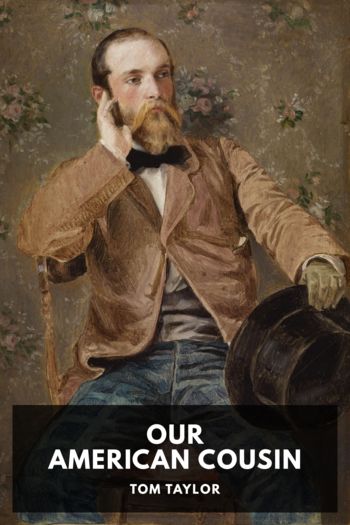Daughters of the Summer Storm by Frances Statham (best sci fi novels of all time .TXT) 📗

- Author: Frances Statham
Book online «Daughters of the Summer Storm by Frances Statham (best sci fi novels of all time .TXT) 📗». Author Frances Statham
Repugnance was evident on Marigold's face, and seeing it, Crane lashed out. "You act as if you disapprove; yet, your father has many more slaves than I do."
Crane had misunderstood. It was the idea of being forced to work in such a dangerous situation—with the frightening possibility of being buried alive—that had caused the look on Marigold's face. But her husband's remark about her father acted as a goad, and she felt honor bound to defend him. For Robert Tabor would never deliberately place his slaves in such danger.
"Not through choice," she replied. "If my father could afford it, he would free all his slaves tomorrow."
Crane's laugh dispelled any desire for Marigold to be nice to her husband.
"And if I could afford it," Crane said, "I would import some of those out-of-work iron miners from Cornwall, as the owners have done just over the state line. I am like your father and have to use the cheapest means available. It matters little to me whether the slaves till the soil or work in the bowels of the earth getting the gold out."
The look on Marigold's face made him angry. "And you can remove that snobbish look from your face, Marigold," he said, lowering his voice. "Do you think your sand hills are the only ones that matter? Take a good look at the red clay earth around you. For this raw Carolina up country produced both the President and Vice-President of these United States."
"Yet, even Vice-President Calhoun felt it necessary to secure his bride from the low country," Marigold countered, not content to let Crane boast too much at her expense.
Julie seemed oblivious to the whisperings of Crane and Marigold. It was as if she were reliving another time, with her gaze directed to the woodland area.
Even the horses were behaving differently, snorting impatiently as they plunged along the last stretch of road that separated them from Cedar Hill. And Sesame, pulling back on the reins, was hard put to control them.
"The horses are impatient to get to their feed bags," Crane said. "They sense it won't be long before they're home."
Marigold's mind came back to Jake and the words Crane uttered concerning the man. "Was that why Jake was in such a hurry to get across the river? To eat his dinner, too?"
"Jake has to obey the curfew," Crane said. "He is not allowed out after dark."
"Oh." The exclamation hung in the air for a while, until Marigold, still curious, asked, "What would happen if he didn't get home? Before dark, I mean."
"He could be arrested by the authorities."
"But you just said he was free. That doesn't sound free to me, if he has to be home by a certain time."
"It's the law, Marigold," Crane stated impatiently. "Just as it's the law that you no longer exist as a separate person. Now that we are married, you are my property and subject to me."
Marigold laughed at his words. "And will you shut me up in the barn tonight, along with your horses and your carriage?"
"Only if you're difficult, beautiful one, and keep bothering me with all these questions," he whispered in her ear, drawing her close to him. "As soon as we get the dust washed off of you, I have a better place for you to go—in my bed."
Marigold pulled away from Crane. "That isn't funny," she said, lifting her chin to glare at her husband.
"It wasn't intended to be."
Marigold gritted her teeth. How long could she stand being married to Crane—being forced to share his bed, when she ached to be in the arms of another man?
She was trapped. Not only by the vows she had taken, linking her to the wrong man, but also by the river. What if she ever sought to escape Crane Caldwell and Cedar Hill?
There was the business of the bell. Jake would not be the only one to hear its clang. And even if the ferry were on the right side of the river, Marigold knew she would not be able to handle it by herself, if she ever needed to do so.
"Please, God. Don't let it ever come to that," Marigold whispered silently—one of the few times she had ever uttered a prayer; for Maranta had always been pious enough for the two of them.
"Look, Marigold," Julie said, breaking into her thoughts. "Beyond the row of cedars, you will see the house any moment."
Marigold leaned forward, peering through the golden autumn haze that had settled thickly on the land. With the last remnants of the sun framing the house, the structure came into sight. Cedar Hill—the sprawling country house, built upon the red clay earth—miles from her beloved low country and the man she had thought to marry. Cedar Hill, her home now—hers and Crane's. At its sight, Marigold felt no warm welcome, no respite from the long journey. Instead, a coldness invaded her body, matching the suddenly cold premonition that gripped her heart.
To seek comfort, Marigold reached up, her hand clasping the golden locket around her neck—the talisman of her eighteenth birthday and her coming of age. With the metal growing warm in her hand, she felt some measure of confidence return. Cedar Hill would never get the better of Robert Tabor's daughter. That, she promised.
7
Maranta stood on the dock and waited for the dinghy to take her to the ship anchored in Charleston harbor.
Her father was the only one to see her off; for Feena had been sent back to Midgard, and Eulalie was nursing the sick Robbie, who had suddenly come down with fever.
The Condessa Louisa stood with Dona Isobel, her middle-aged companion. Drawing Dona Isobel into conversation, the white-haired condessa discreetly moved down the wharf to allow Maranta and Robert Tabor time to say goodbye.
"You have not forgotten anything?"
"No, Papa."
He was ill at ease with this dark-haired child of his who





Comments (0)